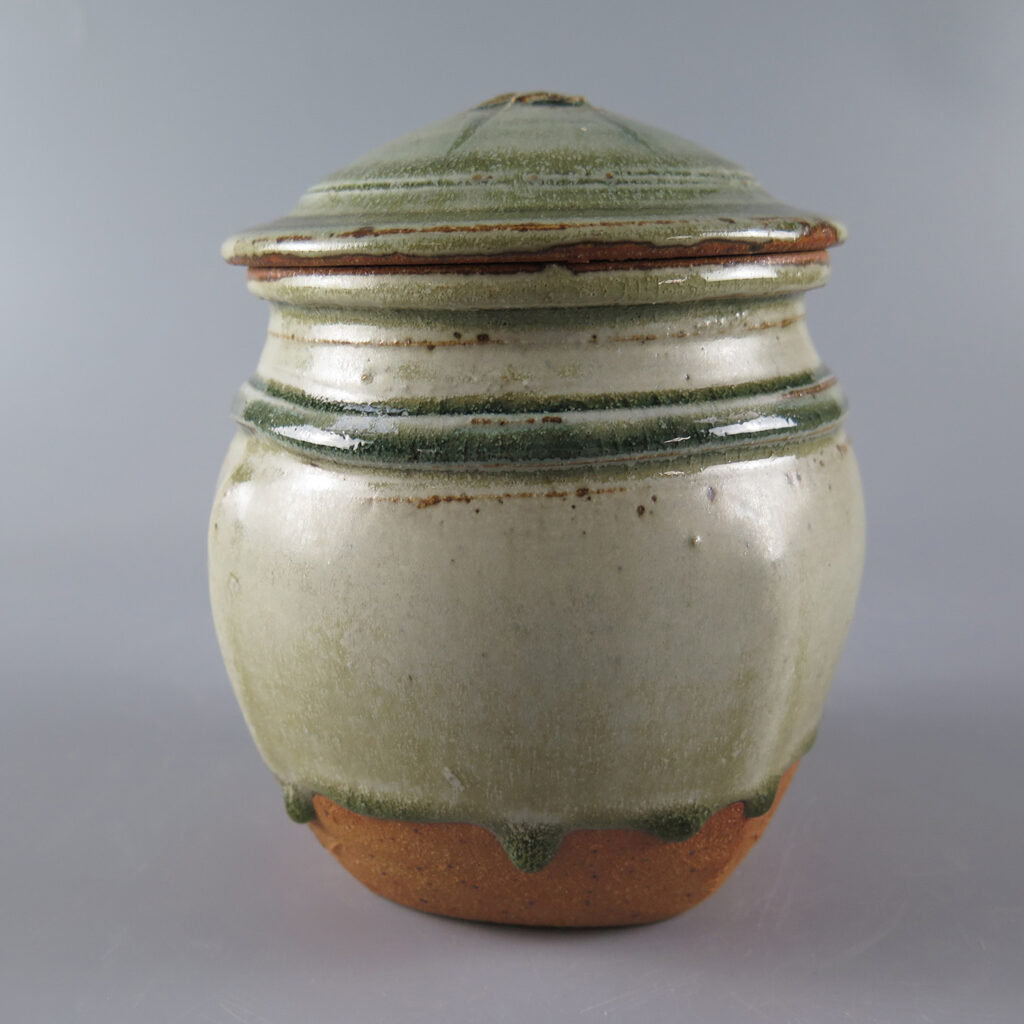
Richard Batterham died peacefully at his home in Dorset on 7 September 2021.
Richard Batterham is acclaimed as one of the foremost makers of domestic stoneware in the world. At Sladers Yard we were honoured to sell his work annually and sometimes continuously over eleven years.
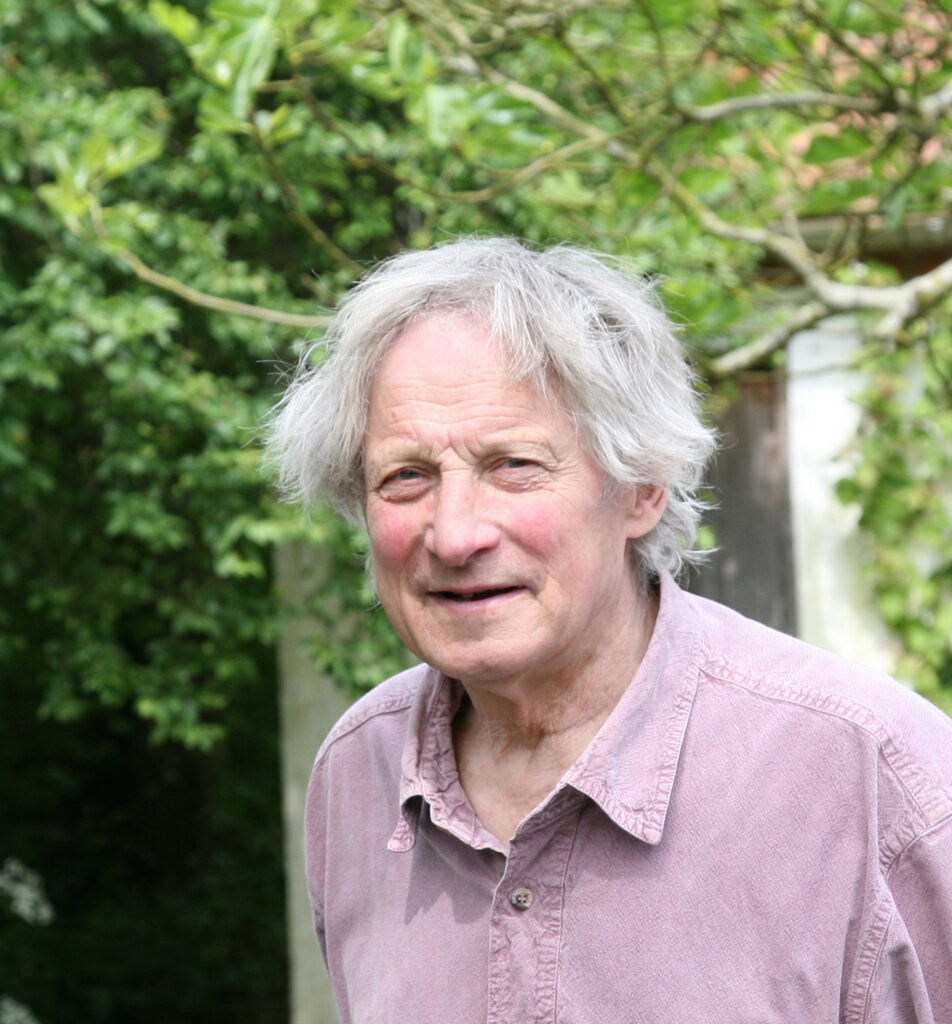
Our most recent exhibition in March 2021 showed pots he had put aside, throughout his long career, in a private collection he used for his own reference and as a record of his work. Some he chose because they marked a significant development that he wanted to replicate and others because they were ideal versions of a form. With the help of his son, the potter Reuben Batterham, Richard decided to release a good number of these pots, some from his final firings and some dating back as far as the 1960s. The response to this show was phenomenal and at the end of the first week all 175 pots were sold.
If you would like to know about other ceramic shows we are putting on, please subscribe for our email invitations and news following the link at the foot of this page or email us on gallery@sladersyard.co.uk.
George Young, whose family are neighbours of Richard Batterham, has made a short film that gets to the heart of this lovable and deeply inspiring craftsman and artist.
Born 1936, Richard Batterham became interested in pottery at a very young age at Bryanston School, where an interest in craft and design was greatly encouraged. He learnt under the guidance of Donald Potter, who was a student of Eric Gill and had also worked with Michael Cardew at Winchcombe. After National Service, Batterham worked for two years under Bernard Leach at the Leach Pottery in St Ives, Cornwall. There he and his future wife, Dinah Dunn, met Atsuya Hamada, a son of Shoji Hamada. ‘I think we got a lot from him,’ Batterham says, ‘about how to handle clay. We were very lucky.’
In 1959 they left to set up their own pottery at their home in Durweston outside Blandford near to Bryanston and Donald Potter. In 1967 Batterham moved into a new pottery workshop in Durweston and built a four-chambered oil and wood-fired kiln. In 1978 with the help of the French potter Thiébaut Chagué, he also built a small salt glaze kiln. The kick wheel that Richard always used to throw his pots was built for him based on Atsuya Hamada’s wheel.
He worked alone in that same pottery for the rest of his life. The only people to work with him were his son Reuben and Thiébaut Chagué. Richard did all the processes himself from digging the clay to labelling the pots. His pots are often referred to as being in the Leach tradition, although he said he felt more in tune with the attitudes of Michael Cardew. His pots were made to enrich life rather than to adorn it. A superb craftsman, his colours were soft celadon blues and greens through to caramel (Manganese), browns and blacks with the nature of his glazes varying from thin and bright to thicker softer glazes. His forms were functional – simple, satisfying and beautiful. Some pots, he said, ‘call out to me that they are really good ones’ and these are the pots we were always delighted to show.
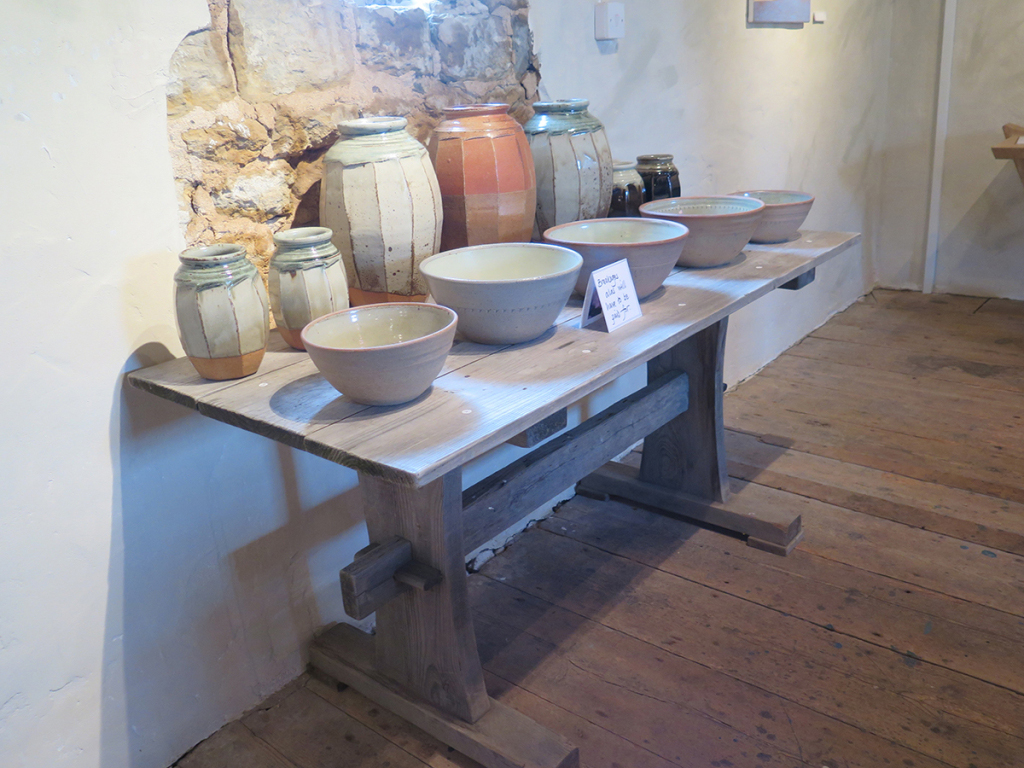
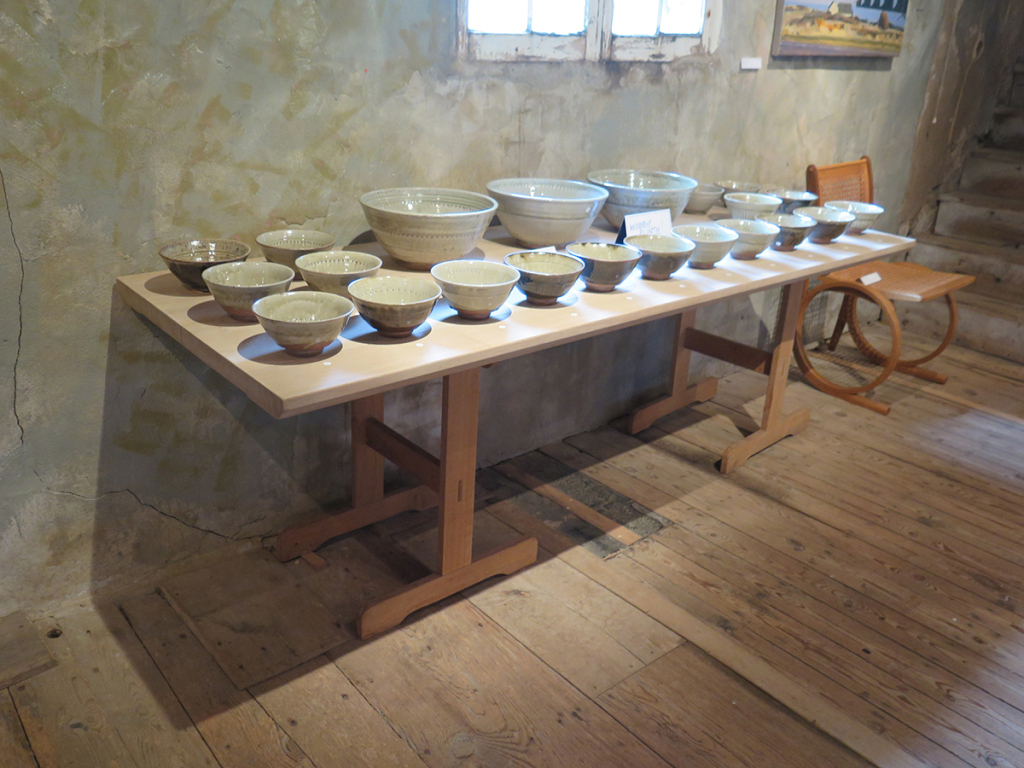
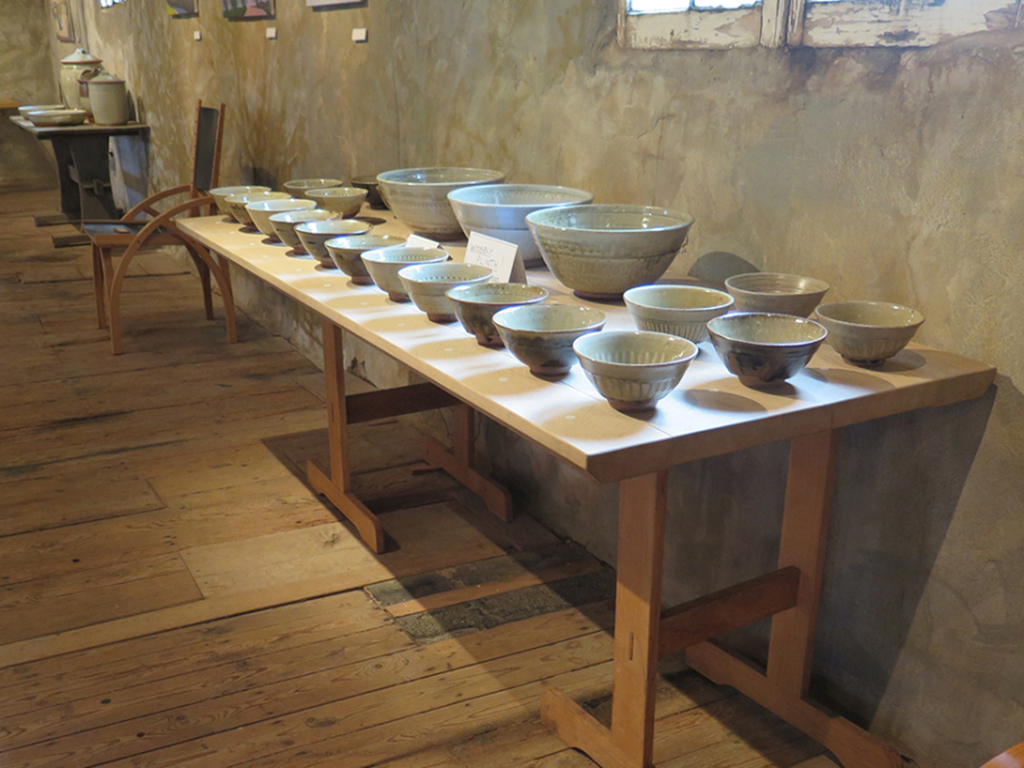
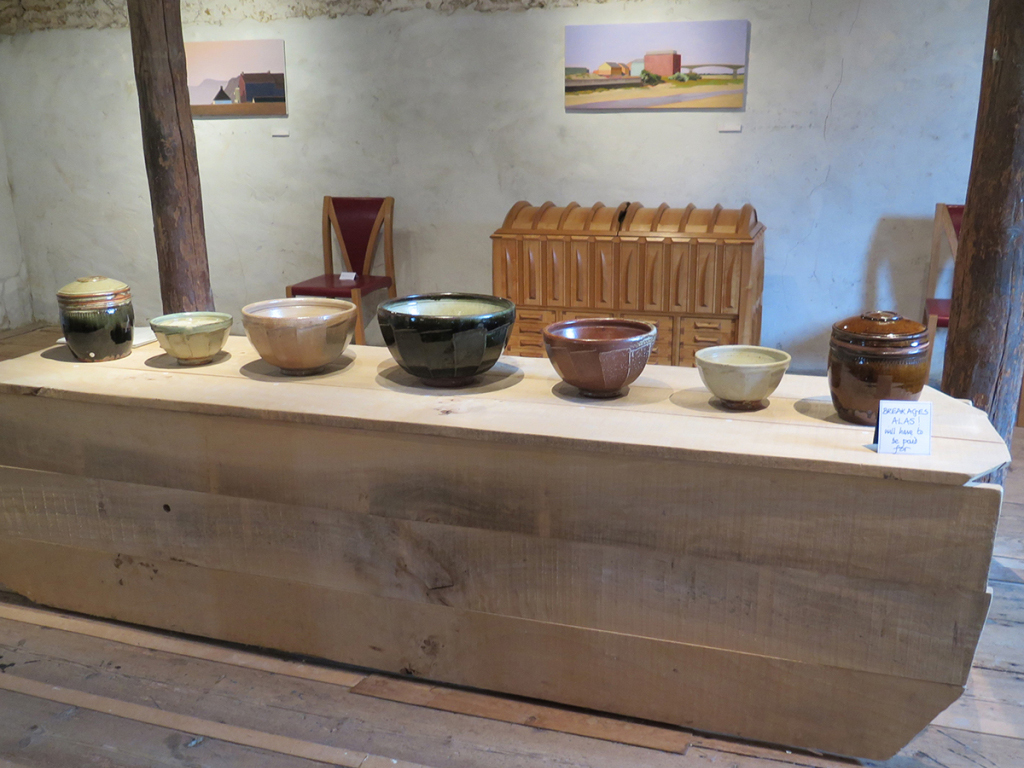
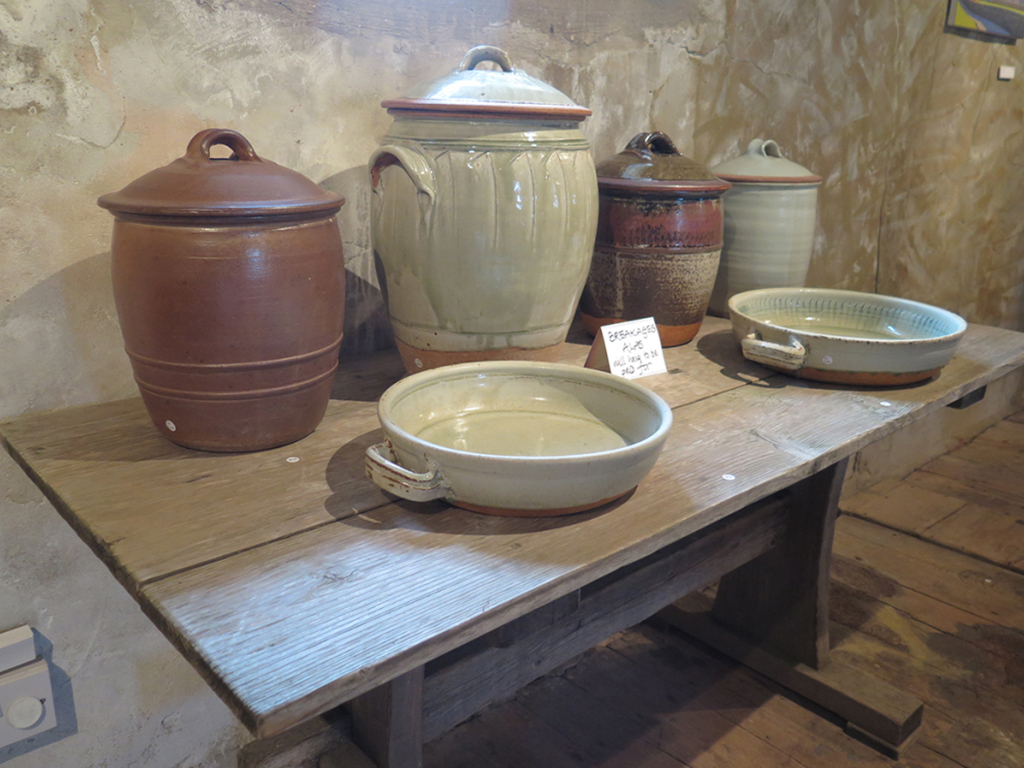
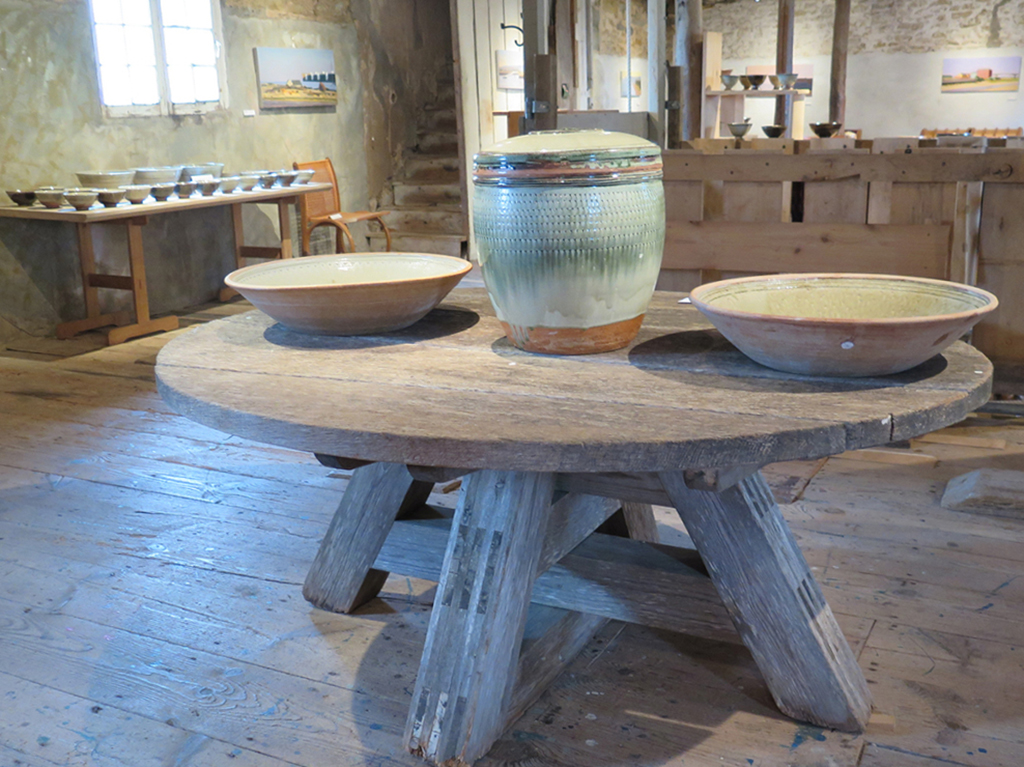
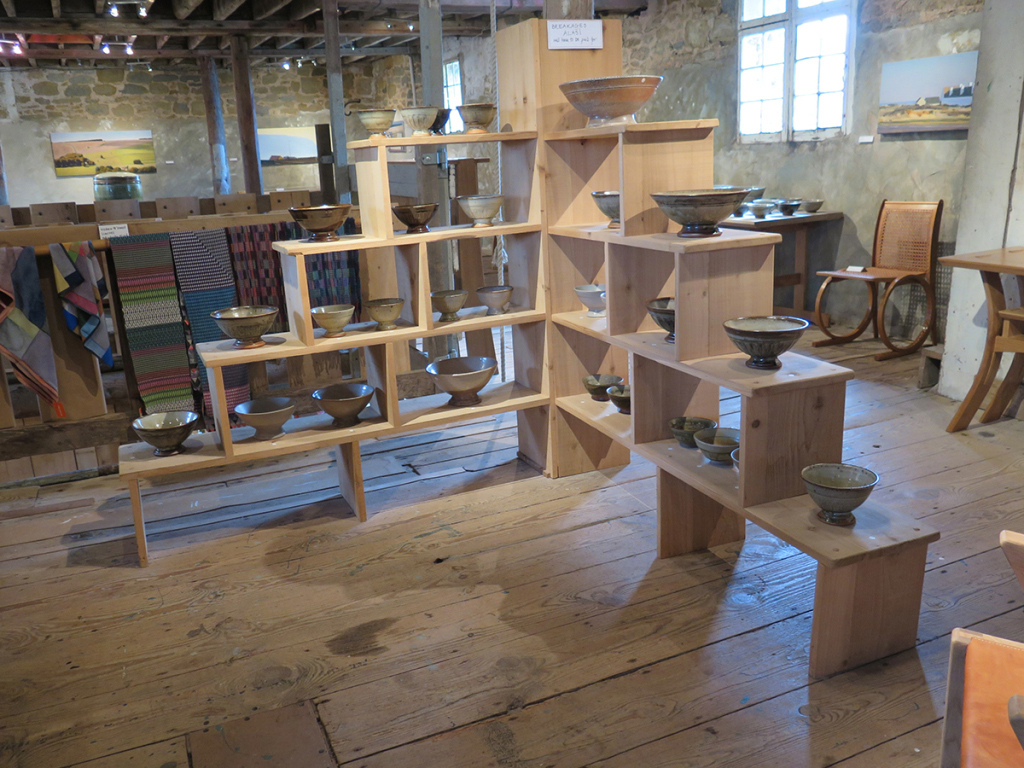
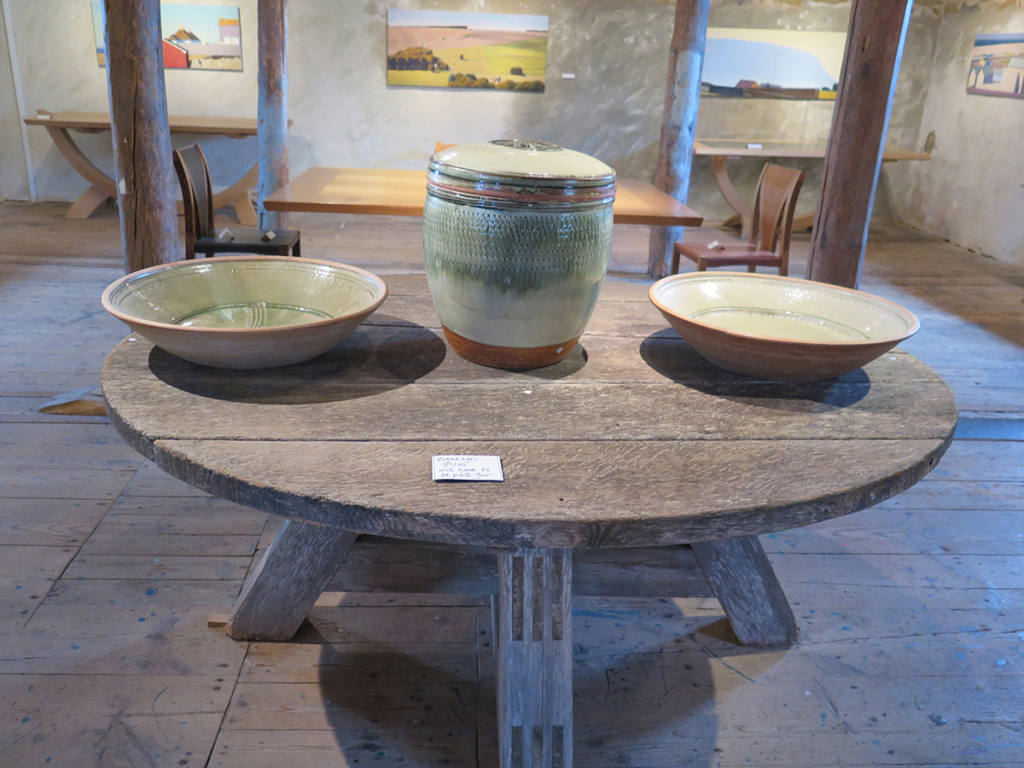
A walk around the exhibition just before it opened.
Describing his own pots, Richard Batterham referred to some of them as ’soft’ or ‘kind’, emphasising their human quality. ‘Michael Cardew used to say form was everything, and form is very important, but I tend to feel that it’s how the clay is handled that really makes a difference. I like to make something you can hold. If someone really hugs onto a pot, that’s lovely and just how it should be.’ Brushing away his own pre-eminence, he said, ‘You just get into the right frame of mind and get on with it.’
Richard Batterham’s work is in numerous museums, including the Tate and the V&A, as well as in private collections all over the world. Sladers Yard was proud to hold major annual selling exhibitions of his work from 2009 – 2021.
Sladers Yard
West Bay Road
West Bay, Bridport
Dorset DT6 4EL
gallery@sladersyard.co.uk
Tel. 01308 459511
© Sladers Yard 2024
Café Sladers
Licensed Restaurant
Events
Information
Weddings and Parties
café@sladersyard.co.uk
Site by FER
Sladers Yard
West Bay Road
West Bay, Bridport
Dorset DT6 4EL
gallery@sladersyard.co.uk
Tel. 01308 459511
Café Sladers
Licensed Restaurant
Events
Information
Weddings and Parties
café@sladersyard.co.uk
© Sladers Yard 2024. Site by FER.